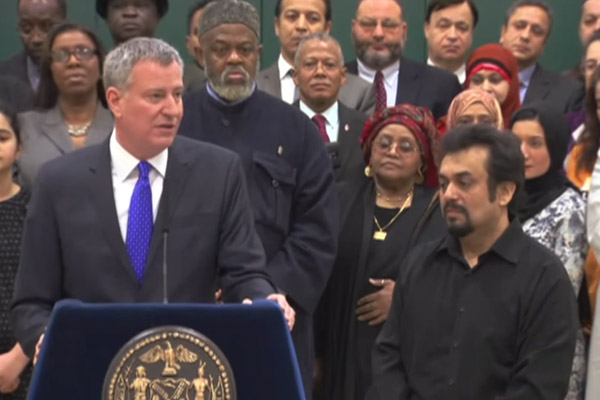
Mayor Bill de Blasio Rises Through Doubt as Face of Religion
- By Nathan Glover --
- 24 Mar 2015 --

As the mayor of a known secular city, Bill de Blasio emerges as something unexpected; a champion of religion who has helped develop the cause of faith in unlikely public forum.
In New York, regional schools will soon have the option to include a midday break for students to pray. Schools will close for two Muslim holy days, and regulations governing circumcision rituals will be relaxed. The United States Supreme Court could decide as soon as next week whether the city has the right to prohibit the implementation of these practices.
Mayor de Blasio has pegged himself as a less conventional liberal, and he is willing to accept religious groups from all faiths. His recent regulations stemmed from campaign promises towards Muslims, Orthodox Jews and other groups that make up a substantial part of the city.
Bill de Blasio has a vision for religious outreach to be inseparable from his work. He wants to create a more “inclusive and equitable New York.” In an interview, he said “If you are going to understand the community and the city, you have to understand how deeply faithful people are, and how central it is to people in their lives.”
The Mayor does not have a strong personal religious background. He had a great-uncle, Alberto, who was a priest, but he died when the Mayor was young.
David Bloomfield, former general counsel for the NYC Board of Education questions de Blasio’s logic, asking “why not close schools on Hindu and Buddhist holidays as well? He’s marginalized certain cultures and religions by pandering to others. Bill de Blasio thinks of religious groups like any other constituency, and his problem is that the Constitution doesn’t treat religion as just another constituency.”
The mayor says “My interpretation of the Constitution says that it protects the right of people to have believe in any faith, or have no faith at all.”


















